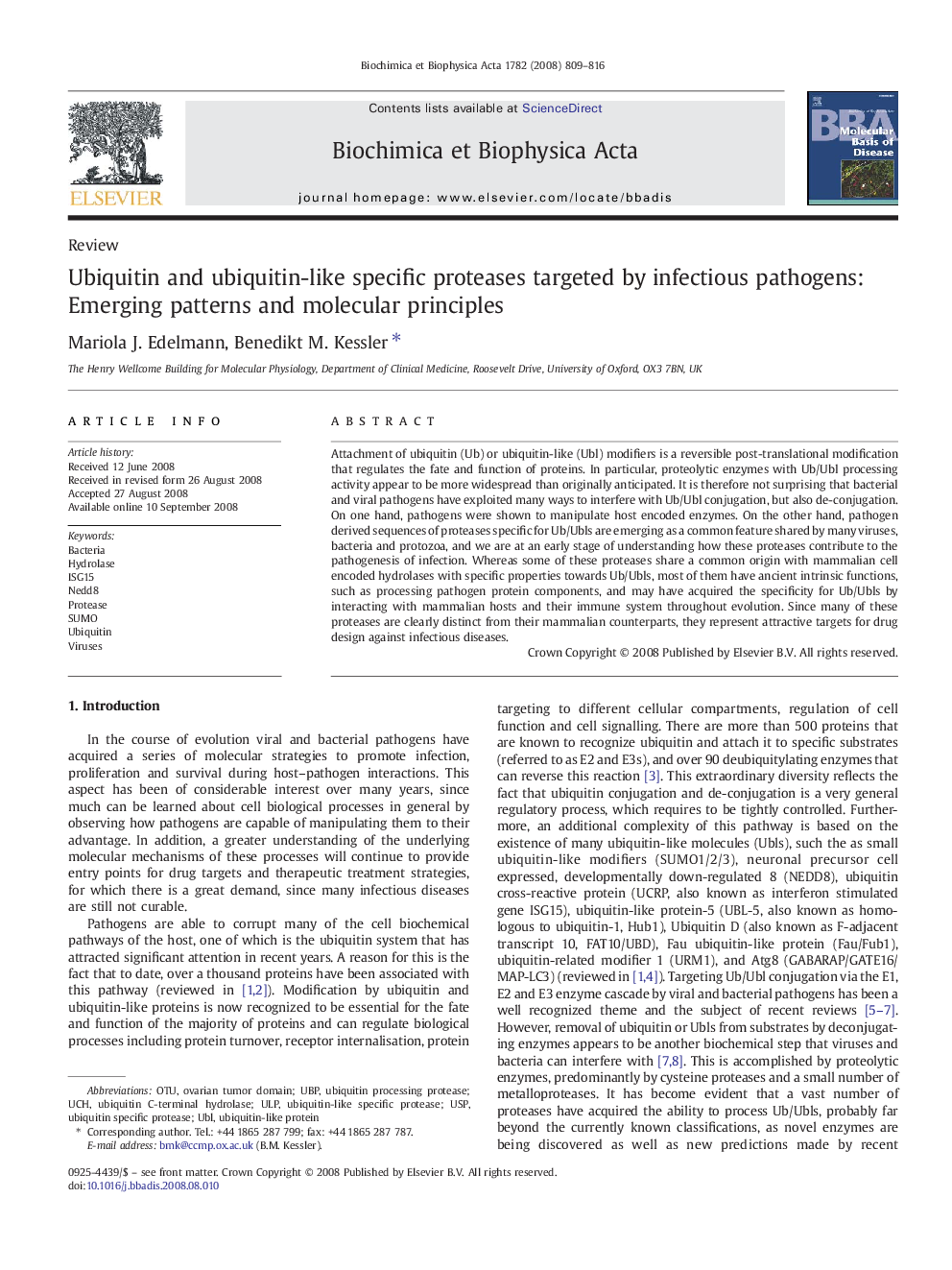| Article ID | Journal | Published Year | Pages | File Type |
|---|---|---|---|---|
| 8262090 | Biochimica et Biophysica Acta (BBA) - Molecular Basis of Disease | 2008 | 8 Pages |
Abstract
Attachment of ubiquitin (Ub) or ubiquitin-like (Ubl) modifiers is a reversible post-translational modification that regulates the fate and function of proteins. In particular, proteolytic enzymes with Ub/Ubl processing activity appear to be more widespread than originally anticipated. It is therefore not surprising that bacterial and viral pathogens have exploited many ways to interfere with Ub/Ubl conjugation, but also de-conjugation. On one hand, pathogens were shown to manipulate host encoded enzymes. On the other hand, pathogen derived sequences of proteases specific for Ub/Ubls are emerging as a common feature shared by many viruses, bacteria and protozoa, and we are at an early stage of understanding how these proteases contribute to the pathogenesis of infection. Whereas some of these proteases share a common origin with mammalian cell encoded hydrolases with specific properties towards Ub/Ubls, most of them have ancient intrinsic functions, such as processing pathogen protein components, and may have acquired the specificity for Ub/Ubls by interacting with mammalian hosts and their immune system throughout evolution. Since many of these proteases are clearly distinct from their mammalian counterparts, they represent attractive targets for drug design against infectious diseases.
Keywords
Related Topics
Life Sciences
Biochemistry, Genetics and Molecular Biology
Ageing
Authors
Mariola J. Edelmann, Benedikt M. Kessler,
